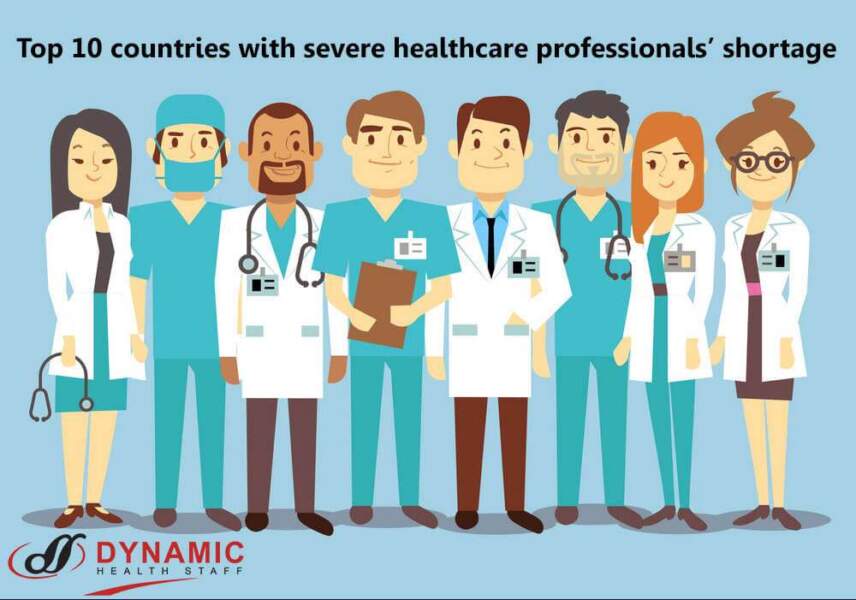What is NHS? And how can you find Tier 2 jobs in NHS with minimum work experience? Let’s understand all of this in more detail.
The United Kingdom has four different national health service systems, and the National Health Service is a publicly funded healthcare system in England. After Brazil’s Sistema Nico de Sade, it is the second-largest single-payer healthcare system in the world.
When we are unwell, it helps us recover; when we are unable to recover fully, it helps us stay as well as we can till the end of our lives. Its purpose is to improve our health and well-being.
It offers health care to all UK citizens based on medical necessity rather than financial capacity.
Although it may appear complicated, seeking employment in the NHS as a foreign medical graduate becomes much simpler if you know what documentation is required and how to organise your job application. This post will assist you in learning how to accomplish that.
Before we learn how to find a job in the UK, we want to let you know there are two types of NHS jobs: training and non-training. We advise you to apply for a non-training position if you recently immigrated to the UK. This will make your resume stand out among other candidates. You can also get help from a CV writing service if you have doubts.
What Are Entry Prerequisites?
NHS requests the assistance of medical professionals from around the world to assist the many patients who contact the NHS. NHS employment in the UK is available for those who are passionate about their profession and wish to take advantage of challenging chances while maintaining a high level of living. No matter your interests, abilities, or qualifications, there is a job for you among our more than 350 available careers.
There are both skilled and unskilled job openings in the NHS, most of which are in short-supply professions. Due to their high demand, those workers whose occupations are on the shortage list have a better chance of being hired by the NHS.
The following are the prerequisites for entrance. Check the person specification for each job opening for detailed entry criteria.
With GCSEs of good to excellent grades and work experience
With internal and external training programmers, you can start at the administrative level of the NHS and advance to management. You require four or five GCSEs with Grades A-C or equivalent for most junior positions. Employers might also consider candidates with less formal education if they can show skills like prior administrative experience.
A level or equivalent
You could start at a higher administrative grade, move to a supervisory position, and eventually into management if you have two or three A-levels or equivalent vocational qualifications. Your advancement will be aided by internal and external training programmers, such as those in budget management or communications skills, which will allow you to put your academic knowledge to use in the workplace. Experience from prior employment may be advantageous. Higher apprenticeships are occasionally offered.
Being a graduate
With the proper training and support, you can begin working for an NHS trust or other healthcare organization in an administrative capacity, get experience in staff supervision, and eventually advance into management.
If you have prior managerial experience, They encourage applicants with relevant managerial experience in the commercial sector, other public or nonprofit organizations, or other settings. Often, you can join at a level that matches your knowledge and experience. For some managerial jobs, direct hiring occurs.
What you’ll need to apply to the NHS
The NHS Jobs website, located at https://www.jobs.nhs.uk, is the best resource for finding open positions. You can choose between part-time and full-time employment, as well as different jobs and closing dates, in the job advertisements posted by the NHS. Additionally, you can access the job description and the application form to complete your job application.
You must give or finish the following as part of your application to be hired for any NHS position:
- CRB/DBS checks
- Verification of your work history or references, typically going back at least three years
- Right to work and ID verification
- Checks for occupational health. This will guarantee that you can work without running the risk of hurting yourself or others.
- Verification of professional body registrations (for example, the GMC)
- Qualifications verification
- signing up with the GMC
- To practise medicine in the UK, all medical professionals must first register with the General Medical Council (GMC). Practising medicine without a GMC licence in the UK is against the law.
How can a foreign medical professional work in the NHS?
Anyone from outside the UK (apart from residents of the Republic of Ireland) must obtain UK Visas and Immigration’s (UKVI) approval before being allowed to work there. They may also need an entry clearance before visiting.
Migration management falls within the purview of UKVI. You must fulfil specific requirements and prove that you are authorized to operate in the UK to receive a visa or entrance clearance.
The EU settlement programme, the points-based immigration system, and the biometric residence permit.
Conclusion
Your application should adhere to the specifications of the NHS position for which you are seeking. Use a different supporting statement example for all jobs you apply for. This will set your profile apart from the competition and improve the employer’s likelihood of responding.
Read Also : Clevo NH70: Gaming Laptop Review, Specs, Pros and Cons, Key Features




































































